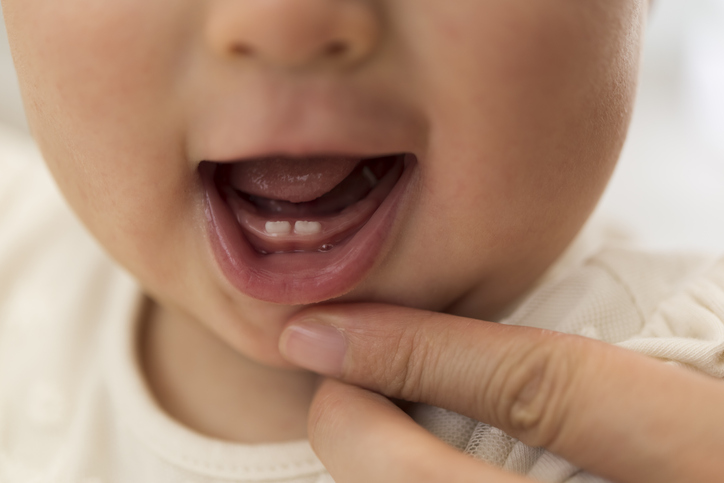
It’s never too early to get your child started on the path toward a lifetime of good oral health.
The primary focus of pediatric dentistry is to prevent dental diseases in early stages by monitoring your child’s dental growth and development.
Infants
Infants should be seen by our office after the first six months of age, and at least by the child’s first birthday. By this time, the baby’s first teeth, or primary teeth, are beginning to erupt and it is a critical time to spot any problems before they become big concerns.
Conditions like gum irritation and thumb-sucking could create problems later on. Babies who suck their thumbs may be setting the stage for malformed teeth and bite relationships.
Another problem that can be spotted early is a condition called “baby bottle tooth decay,” which is caused by sugary substances in breast milk and some juices, which combine with saliva to form pools inside the baby’s mouth.
If left untreated, this can lead to premature decay of your baby’s future primary teeth, which can later hamper the proper formation of permanent teeth.
One of the best ways to avoid baby bottle tooth decay is to not allow your baby to nurse on a bottle while going to sleep. Avoid dipping pacifiers in sweet substances such as honey, because this only encourages early decay in the baby’s mouth. Encouraging your young child to drink from a cup as early as possible will also help stave off the problems associated with baby bottle tooth decay.
TEETHING, PACIFIERS AND THUMB-SUCKING
Teething is a sign that your child’s gums are sore. This is perfectly normal. You can help relieve this by allowing the baby to suck on a teething ring, or gently rubbing your baby’s gums with the back of a small spoon, a piece of wet gauze, or even your finger.
For babies under the age of 4, teething rings and pacifiers can be safely used to facilitate the child’s oral needs for relieving gum pain and for suckling. After the age of 4, pacifiers are generally discouraged because they may interfere with the development of your child’s teeth.
Moreover, thumb-sucking should be strongly discouraged because it can lead to malformed teeth that become crooked and crowded.

Primary and Permanent Teeth
Every child grows 20 primary teeth, usually by the age of 3. These teeth are gradually replaced by the age of 12 or so with a full set of 28 permanent teeth, and later on, four molars called “wisdom teeth.”
It is essential that a child’s primary teeth are healthy, because their development sets the stage for permanent teeth. If primary teeth become diseased or do not grow in properly, chances are greater that their permanent replacements will suffer the same fate. For example, poorly formed primary teeth that don’t erupt properly could crowd out spaces reserved for other teeth. Space maintainers can sometimes be used to correct this condition, if it is spotted early enough.
BRUSHING

Babies’ gums and teeth can be gently cleaned with special infant toothbrushes that fit over your finger. Water is suitable in lieu of toothpaste (because the baby may swallow the toothpaste). Parents are advised to avoid fluoride toothpastes on children under the age of 2.
Primary teeth can be cleansed with child-sized, soft-bristled toothbrushes. Remember to use small portions of toothpaste (a pea-sized portion is suitable), and teach your child to spit out, not swallow, the toothpaste when finished.
Toothaches
Toothaches can be common in young children. Sometimes, toothaches are caused by erupting teeth, but they also could indicate a serious problem.
You can safely relieve a small child’s toothache without the aid of medication by rinsing the mouth with a solution of warm water and table salt. If the pain doesn’t subside, acetaminophen may be used. If such medications don’t help, contact your dentist immediately.
Injuries
You can help your child prevent oral injuries by closely supervising him during play and not allowing the child to put foreign objects in the mouth.
For younger children involved in physical activities and sports, mouth guards are strongly encouraged, and can prevent a whole host of injuries to the teeth, gums, lips and other oral structures.
If the tooth has been knocked out:
- Rinse the mouth of any blood or other debris and place a cold cloth or compress on the cheek near the injury to keep down swelling
- Call dental office immediately for emergency care
- Try to place the tooth back in its socket while waiting to see our office, holding it by the crown, not the root. If not, place the dislocated tooth in a container of cold milk, saline or the victim’s own saliva.
If the tooth has been fractured:
- Rinse the mouth with warm water and apply a cold cloth or compress. May use ibuprofen to help keep down swelling.
- Call dental office immediately for emergency care
- If the fracture is minor, the tooth can be sanded or if necessary, restored by the dentist if the pulp is not severely damaged.
If the primary tooth has been loosened by an injury or an emerging permanent tooth:
- Try getting the child to gently bite down on an apple or piece of caramel; in some cases, the tooth will easily separate from the gum.
Irritation caused by retainers or braces:
- Try placing a tiny piece of cotton or gauze on the tip of the wire or other protruding object.
- If an injury occurs from a piece of the retainer or braces lodging into a soft tissue, contact our office immediately and avoid dislodging it yourself.


